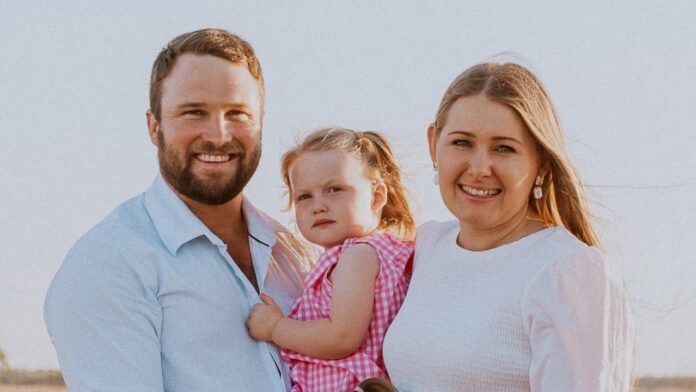[ad_1]
The number of farmers seeking mental health help doubled last year, with nearly 70 per cent of those reaching out being men.
This concerning trend prompted the launch of a new farmer-focused mental health campaign, Don’t Keep it Under Your Hat, by specialist mental health support charity TIACS (This is a Conversation Starter).
Supported by the Macdoch Foundation, the campaign encourages farmers to prioritise their mental wellbeing while recognising the unique challenges faced by those in the agriculture industry.
TIACS, providing free phone and text counselling services for Australia’s blue-collar, rural, and regional communities, has supported more than 18,230 individuals since June 2020.
This assistance spans various occupations, including farmers, apprentices, truck drivers, and construction workers, with men representing more than two-thirds of the callers and an average age of 37.
The primary reasons for seeking support revolved around relationship issues, anxiety, and financial stress.
TIACS co-CEO Jason Banks said working the land came with ups and downs and often a farmer’s mental wellbeing experienced similar cycles.
“Most farmers get up every day and put on a hat before beginning their workday, therefore our campaign takes this practical everyday item and uses it to remind people not to ignore or mask what’s going on, underneath the hat, inside their head,” Banks said.
“After initial contact with TIACS one of our experienced and fully qualified counsellors will guide conversations either via text or on the phone to offer support and help lighten the load.”
Macdoch Foundation chairman Alasdair MacLeod, an almost two-decade veteran in the agriculture industry, said it was essential farmers had easy access to quality mental health services.
“The reality of farming can be isolating, often requiring people to work in rural and remote areas and some days interact with animals, crops and equipment more than people,” he said.
“There has also been a reluctance to seek support and we are keen to find ways of removing those barriers.”
North Queensland beef farmer and A Place to Call Home podcast host Sam Fryer said if it wasn’t for mental health services like TIACS, he “wouldn’t be here today”.
Facing adversity from a young age, including the loss of a sibling and severe bullying, Fryer experienced a life-altering accident at 17 that almost saw him lose an arm.
His struggles continued into his early 20s, exacerbated by a workplace incident where a colleague lost their life.
This incident pushed him into a dark place, prompting him to seek professional help and implement lifelong mental wellbeing strategies.
“We’re pretty bad in rural Australia, especially in agriculture, with speaking up,” the 34-year-old father-of-three said.
“We kind of grin and bear it a lot of the time, and sometimes that’s not the best way to get through these situations.
“I know a few people that have taken their own lives in rural Australia and it’s so sad to see.
“It’s also where we live in the remoteness of Australia … there’s no one that comes here that’s a mental health specialist … so if you’re desperately struggling and on the verge of taking their own life, there’s nothing there to actually help them through that.
“That’s what’s essential about TIACS, it’s not just a feel good service or just a charity, it’s an essential service. It’s something that save lives. And it’s needed in rural Australia.”
For anyone seeking mental health support, call or text TIACS on 0488 846 988 Mon-Fri 8am-10pm AEST or visit tiacs.org
Originally published as A surge in farmers seeking mental health help prompts launch of TIACS’ Don’t Keep it Under Your Hat campaign
[ad_2]
Source link


